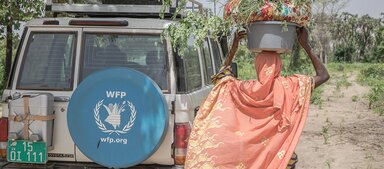
Protection from Sexual Exploitation and Abuse
Leading change across the humanitarian system
Through the IASC Championship on Protection from Sexual Exploitation and Abuse and Sexual Harassment (PSEAH), WFP leads and strengthens collective action to build a humanitarian system rooted in safety, dignity and accountability.
Executive Director Cindy H. McCain assumed the role of Inter-Agency Standing Committee (IASC) Champion in 2024 and extended the Championship through 2025, reaffirming WFP’s commitment to long-term, system-wide change.
The Championship focuses on three priorities:
- Operationalizing a victim-survivor-centred approach
- Promoting organizational culture change through leadership and partnerships
- Supporting continued capacity strengthening across the sector
Learn more about activities and achievements here: IASC Champion on Protection from Sexual Exploitation and Abuse and Sexual Harassment.
Our protection from sexual exploitation and abuse work
-
Strengthening capacity
-
A key aspect in the prevention and reporting of SEA is awareness. WFP employees and partners are expected be able to define, recognize and respond to SEA, including understanding their obligation to report. They are capacitated through the provision of advice, guidance and tools to do so, thus living WFP’s commitment to a victim-centered approach. Employees are required to complete a mandatory e-learning on PSEA as part of performance evaluation.
-
Integrating prevention and protection
-
Interagency and donor engagement
-
Reporting SEA
-
Victim-centred approach








